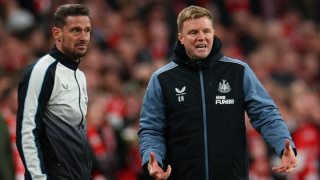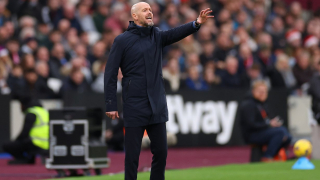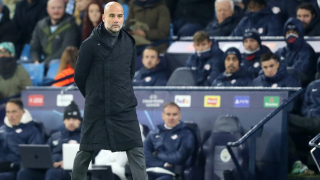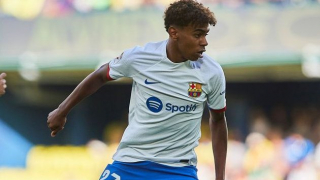Before the world of digital commercialisation and social media player proliferation, football was just one of a number of sports stuck in the marketing dark ages. Far from the heady days of a global reach and worldwide fanbase, the early 90s were times when few were beginning to clock onto the stratospheric marketing heights provided by the Premier League's arrival in 1992.
One of the clubs you'd be hard pressed not to know in many parts of the world today is Leicester City, which was about as far away from Premier League Champions as ever in 1991, when one of football's first chief executives arrived, Barrie Pierpoint. Languishing in the depths of England's second divisional tier, Pierpoint, also the club's first director of marketing, would help take The Foxes on a steady rise, off the field but matched by the evolving dichotomy of football that would become to be a business both on the field as much as it was behind the scenes.
Here, Pierpoint guides us through Leicester City's evolving marketing journey, one which laid the blueprint for many of the off-the-field principles that guide club commercial success today.
ALL THE GEAR AND NO IDEA
Leicester City, a small, relegation battling East Midland's side, was in a dire position at the turn of January 1991. Sitting just three places away from the relegation zone to division three and making a commercial turnover of just £500,000, it was clear something needed to be done to boost the club's bleak prospects. A business brain, as well as success on the pitch, was needed so that Leicester could go from bankrupt to balling, but with tatty merchandise, a flimsy, poorly produced kit and a hospitality offering that you'd be scared to even feed to kids, Pierpoint would have his work cut out.
With no brand strategy and no marketing plan to speak of at the club, Pierpoint had little to work with but his brain, a passionate set of fans and some willing colleagues. And with imposing board objectives of building a new stand, raising attendances and attracting star players, Pierpoint set out with lofty expectations to meet.
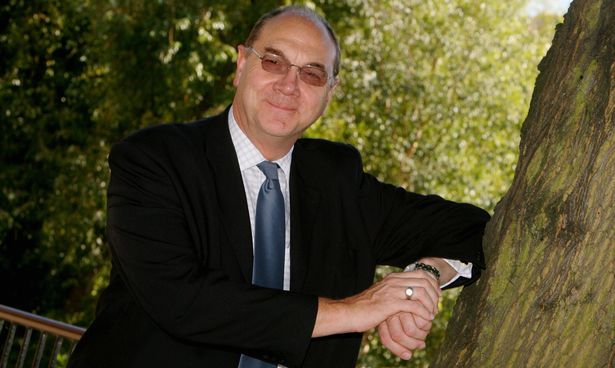
THE ESTABLISHMENT OF FOXES LEISURE
"I wanted to be like a Marks and Spencers brand," recalls Pierpoint, the flamboyant character renowned for his flashy suits, big cigars and even bigger glasses in the 90s.
"We were cash strapped and had no idea of marketing when I arrived, but there was one simple element missing that was staring us dead in the eye – interaction with the fans.
"No one had bothered to consult with them on the basic things like food and merchandise. They'd be the ones consuming it, and I wanted to make sure that Leicester City's offering stood for hallmarks of quality, reliability and professionalism in the community."
Pierpoint was of course, influenced by the big teams whose kits he saw adorned around Leicester City's streets, but when he went to consult with the likes of Manchester United & Liverpool FC, he didn't get much by way of a response.
"They just didn't want to know," explained Pierpoint. "We were hoping we'd be able to get a steer on their approach to marketing the kit, delivering a hospitality experience and the such like, but they couldn't be bothered with a pithy little division two side."
Undeterred, Pierpoint pushed on with his vision. First on his list was the kit, with which he sought a higher quality production. This would be key to elevating Leicester's status, particularly from a commercial and community engagement standpoint.
"If you can get people to buy the kit, they'll tend to invest in everything else too, such as stationary, videos, books and more," said Pierpoint.
"These kits were also targeted at kids, and once you had them on board you could really expand out into different types of leisurewear for the mums and dads to wear, and this is partly where Foxes Leisure was born, out of need to wear you club colours to suit any occasion, even on the school run in your tracksuit bottoms!"
Of top importance for Pierpoint was having the fans and then club manager Brian Little on board. Players needed to feel comfortable wearing the kit and fans too proud to wear it. And after many painstaking hours of fan forums, meetings and consultations with players and fans, Foxes Leisure was born, a commercial entity but one too that would play a huge part in matters on the pitch.
"Brian was a businessman himself," added Pierpoint. "He knew that the profitability would go into the players, and in turn, Leicester could really transform itself from a club that sold its best players to survive to one that retained key figures in order to push for promotion."
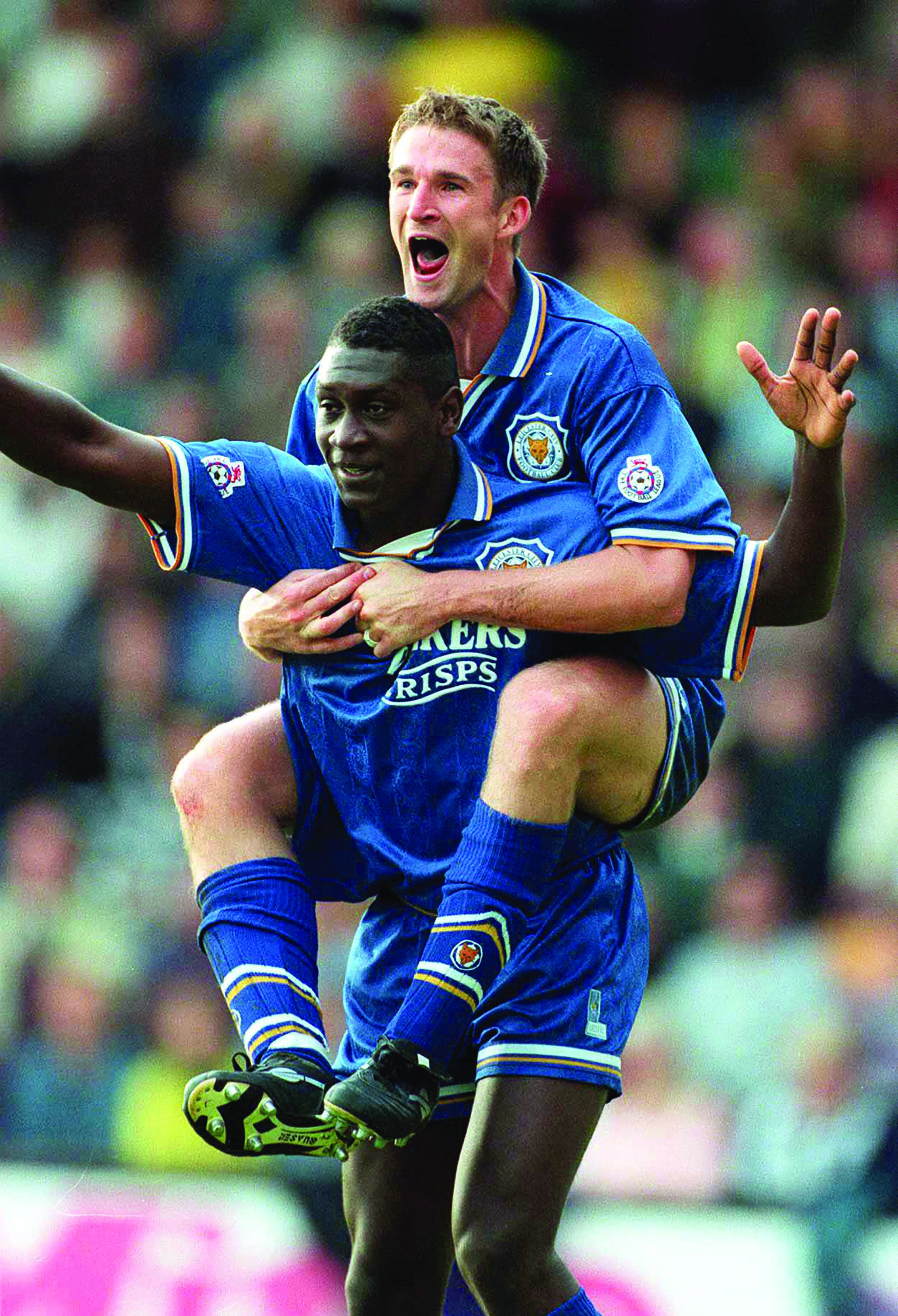
FAMILY NIGHT FOOTBALL
With Foxes Leisure in place, Pierpoint's next commercial revolution would be one that would change the landscape of reserve team football forever. In the season of 1993/4, with Leicester City ascending the ranks and on the brink of playoff glory, Pierpoint along with club marketer Richard Hughes devised a way of ramping up Leicester City's family offering.
"Reserve games in the early nineties were weekday affairs. The crowd consisted of a handful of fans who parted with their hard-earned cash to sit and enjoy a steaming hot cup of tea.
"And when you looked at the main games, it was all burly men shouting from the stands. Certainly not environments you wanted to bring women and children along to."
Drawing inspiration from American sports, with their half-time shows, cartoon mascots and cheerleaders, Pierpoint and Hughes set out to adopt a much wider fanbase in a safe and fun environment. Crucial to this would be pricing its new reserve game venture, just £2 for adults and a 'quid for kids', a concept that go on to become a widely known marketing tactic in football stadiums across the country.
Family Night Football (FNF), as it became known, reached its peak in 1994, and by this time it was clear that Hughes and Pierpoint's vision was a success. When the might of Manchester United reserves arrived at The Foxes stadium in February of that year, it attracted over 14,000 fans, a fixture that a young unbeknownst ball boy for the match, Emile Heskey, would remember well.
"I remember watching in disbelief as more and more fans entered the ground. By the time the match [against Manchester United] kicked off, the ground looked as full as it usually was for first team games!"
Innovators in off the field invention, Leicester City's concepts were beginning to get noticed. Laying the blueprint for change, Pierpoint and Hughes' concept successfully elevated reserve team football to event status, one that increased stadium atmosphere, packed in more fans and crucially made it affordable for all.
And as a bonus, Pierpoint and his cohorts were asked to run seminars for interested clubs looking to replicate the FNF concept, which ironically, included those that had spurned his consultation advances just a few years ago.

THE FOOTBALL BUSINESS DICHOTOMY
With concepts such as Foxes Leisure and Family Night Football so closely interwoven with boosting the Leicester brand both on and off the pitch, it's this evolving argument, on how much footballing business infringes on the playing side, that is a constant argument in the modern day game.
"Clubs are in a unique position," explained Pierpoint.
"Football is a business of course – it needs to make a profit like any other to survive but the fans don't see it this way.
"Therefore you need to communicate with them really carefully. Its why I never did anything like Foxes Leisure or FNF without consulting with the manager or fans first.
"And of course, fans are fickle. If events aren't going well on the pitch then your merchandising and commercial operation plummets, so you really need to drive your standing in the community to ensure this backs you up when the tough times hit."
Nowadays, it's not uncommon to see big football stars getting stuck in with acts of good grace, whether it be a hospital visit, food delivery for the homeless or grass roots engagement. However, back in the 90s, Pierpoint explains it wasn't quite as clear cut.
"You'd have players tripping over their lines, not knowing what to say and generally very media untrained.
"So what we set out to do is build a community engagement department. One that would increase our standing with key local institutions such as the Leicester Mercury, the general hospital and educational authorities. We did things like teach struggling adults and kids how to read and write, and make visits to youngsters playing for their local teams down on the park.
"But we ensured it wasn't a shambles by teaming up a shy player with an outgoing one to ensure the engagement was a success.
"Nowadays you've got thousands of marketers, PR people and relationship managers going along with celebrity players to their goodwill initiatives, it's a very closely monitored operation.
"Back then we had to really push and coach these players on what to say and do. It was a learning curve, but one that would become a blueprint for modern day football."
As football evolved through the years of Premiership commercialisation under Pierpoint's tenure, bringing with it millions of pounds worth of funding in TV rights and sponsorship opportunities, the threads of business and football would continue to become ever increasingly interwoven.
And with dawn of the internet and later, social media, the football marketing landscape would take a technologically driven course, with fans able soak in the latest goings on via their mobile screens and Instagram player profiles.
But for Pierpoint, who left Leicester City at the turn of the millennium, there is something to be said for the more traditional tactics that helped shaped Leicester City's ascension to the top.
"Ironically, I think there's that distance now, despite clubs able to reach more and more people via social media.
"Of course, it's great that clubs can post out interactions to millions of fans across the world, but it's all very controlled, mediated and hands-off.
"There's simply nothing that can replicate that physical player to fan interaction.
"If more clubs can increase their activity in these areas, looking at genuine grass roots initiatives that make a real difference to youngster's lives, I feel clubs will set themselves on a winning path to growing their followings both on and off the pitch."
Leicester City's storied ascension to the Premier League and its footballing and marketing journey, is chronicled in Barrie Pierpoint's new book, 'Minding My Own Football Business', available now at https://www.mindingmyownfootballbusiness.co.uk/


